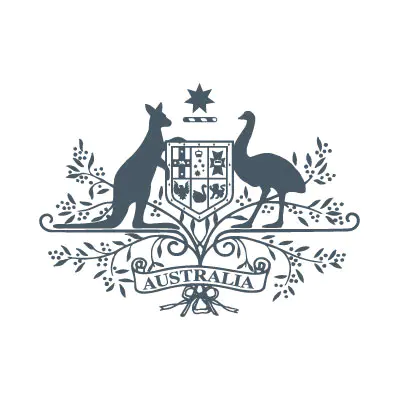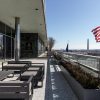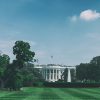
Doorstop Interview – Parliament House, Canberra
ANTHONY ALBANESE, PRIME MINISTER: From tomorrow, you will see evidence of why a change of government matters. From tomorrow, ten days paid domestic and family violence leave will be available to working Australians. It will make an enormous difference. This is the change that has come from the front line. Those people who work in family and domestic violence, providing support, particularly for women and children fleeing violent circumstances, have pointed out for a long period of time that a woman shouldn’t have to choose between her job and her safety. What this change is about is making sure that a woman fleeing domestic violence can do so whilst maintaining their employment. This change will save lives. It is one of the first pieces of legislation that we introduced and passed through both houses of this Parliament. And it received, of course, overwhelming support. But this is a change that’s been many years in the making. For years people have campaigned, have visited Canberra, have visited their local MPs and said that this is a necessary reform. And I want to thank, in particular, those people in the union movement, but also good employers who came forward and supported this change as well. But above all, I want to thank the survivors, the supporters, the frontline workers who campaigned so strongly for this issue of women’s safety. Domestic violence is a scourge. We hope that this is less and less necessary in the future. But the truth is, we know that this has an impact in every suburb, every town and every city of Australia, and that each and every night, too many circumstances occur where women and children are faced with that choice. This will improve women’s safety. It’s a practical change, and it’s one that I’m very proud of.
JOURNALIST: Last year, Indigenous groups wrote to both the Federal Government and also the Northern Territory Government, urging them to reconsider the end of the grog ban, warning of dire consequences. Has the Federal Government and the the Territory Government let down women and children?
PRIME MINISTER: All governments could have done and better over a long period of time on all of these issues. The truth is that many of these issues are intergenerational. They’re not things that have come about in a day or a week or a month or a year. They go over generations. And that is why we need full solutions. That’s why we need to listen to communities about what their needs are. The funding for family support services in the Northern Territory was due to cut out on June 30 of this year. There wasn’t even ongoing funding in the Budget that we inherited. But all governments need to do better.
JOURNALIST: You say you should be listening to the community. The community spoke last year and urged both the Northern Territory Government and your Government, through Linda Burney, to reconsider the grog ban, warning of those dire consequences. Is that just rhetoric or will you do better from here on?
PRIME MINISTER: All governments need to do better. The Labor Government put in place Stronger Futures in 2012. It was a ten-year program. It wasn’t a decision of my Government for that to end. That was not extended. But all governments need to do better.
JOURNALIST: On Kiribati, they have just announced that they will rejoin the Pacific Island Forum. What role did Australia play behind the scenes?
PRIME MINISTER: You are asking me a question about foreign policy and what occurred behind the scenes. One of the things about behind-the-scenes is that they are behind-the-scenes. But Australia unequivocally supports the Pacific Island Forum. It is the body that is so important to bring together the Pacific family. I attended the Pacific Island forum. I have had discussions with the new Prime Minister of Fiji since his election. It is planned to have an in-person leader’s meeting of the Pacific Island Forum in coming weeks. This is good news with Kiribati rejoining the Pacific Island Forum because it is important that on issues of security and our economic relations, that we work together as a Pacific family and I welcome their return.
JOURNALIST: Peta Murpy has spoken about her battle with cancer ahead of her return to Parliament next week. What do you have to say to her and other women in similar situations?
PRIME MINISTER: I was with Peta Murphy on Friday. Peta Murphy is a courageous Australian. She’s continuing to do a fantastic job as the Member for Dunkley. But she’s also determined to overcome this health challenge by continuing to do her job, continuing to work, and I think she’s showing great courage and is an incredible role model. Peta Murphy, I think, is an inspiration for all Australians and I pay tribute to her, to her courage. I wish her all of the very best, as I’m sure do all of her colleagues – not just in the Labor Party but in this building. I had a discussion with her, and I thank the Today Show for the respectful way in which they engaged with her in telling her story. One of the things we have to do is to talk more about the complex journey of life that individuals go through. And in Peta Murphy being prepared to do that, I think she will be making it easier for others.
JOURNALIST: Just on the Voice to Parliament, Noel Pearson said yesterday that it would demand better for education providers for better Indigenous outcomes. He said that education and the failings of education were the heart of these Alice Springs problems and problems in other remote towns. Do you agree that it is a failure in education? And how would a Voice to Parliament improve education outcomes for Indigenous children?
PRIME MINISTER: Well, education is a huge problem. Part of the challenge that we have to overcome in closing the gap, one of the clear priorities needs to be providing people with education. Because education leads to employment, employment leads to income, it leads to less dependency on other issues that come in. Noel Pearson is a great Australian and I always listen to Noel Pearson. But what Noel Pearson wants as well, very clearly, is a Voice for Aboriginal and Torres Strait Islander people, and he wants one with the security of it being enshrined in the Constitution.
JOURNALIST: On AUKUS, we’ve had news overnight that the United States has suspended repair work in a number of dry dock facilities along the West Coast, prompting concerns about the ability for the US Navy to be able to service its nuclear submarine fleet. What impact does that have on Australia’s discussions with both the US and the UK leading up to that decision due to be made in the next couple of months on Australia’s future submarine fleet?
PRIME MINISTER: The discussions in AUKUS are proceeding. They’re proceeding in a positive manner with both the United States and the United Kingdom.
JOURNALIST: On hospital funding, the AMA have released a report today and it paints a pretty grim picture of the situation. National Cabinet is meeting on Friday. They’re calling for the Government to increase its share of hospital funding from 40 per cent to 50 per cent. Is that something that the Government is considering? What more can be done?
PRIME MINISTER: We’ll be considering, on Friday, the Medicare Task Force Report. The Commonwealth has responsibility for primary healthcare. I was up in Tasmania on Friday in Devonport with the Tasmanian Premier, talking about the practical implementation of the Tasmanian share of the $100 million fund that we announced in last October’s Budget. What that will do is allow for an increased number of GPs to work in rural and regional Tasmania. It’s Tasmania-wide: $8 million from the Commonwealth, $5 million from the Tasmanian State Government. And it will make an enormous difference. And I pay tribute to the Premier of Tasmania for the work that he’s done. We will be coming out with further agreements with states and territories about that. We need to have better interaction of primary healthcare and the hospital system. Part of the key here is to get people out of emergency departments. There’s a range of measures that we have to do that. Putting 24/7 nurses in nursing homes is one of those, so that people who should be getting the care that they need in their aged care residency where they live, if there was a nurse on site, that would reduce the number of people who are then sent to EDs. Dealing with disability care, where so many people are in EDs or in hospitals who should be in more appropriate facilities. We need to talk through the hospital system, the way that it works as a whole. It’s not surprising that people will always argue for increased funding. What I’ve been pleased with, with the Premiers and Chief Ministers – and it’s hard to put this in a headline – is working through these issues in a good way.
JOURNALIST: Are you concerned about the push for migrants to be recognised in the Constitution? Is that a spoiler attempt by the ‘No’ campaign in the referendum?
PRIME MINISTER: People will make their own judgements on that. I think that one of the really positive things is the way that FECCA, the chief peak body, has come out very strongly and will be running a campaign in support of recognition and consultation for Indigenous people. That is what it is about. There is a special place in this nation for the oldest continuous culture on Earth, who have been here for at least 60,000 years, for thousands of generations. That should be recognised in our nation’s birth certificate. That is overwhelmingly supported by the community leaders that I’ve met with who will be campaigning, whether it be the more established community organisations or whether it be some of the newer migrant groups as well, who are all very respectful. It strikes me that one of the things that occurs now, if you go downstairs to the childcare centre here, you will see the youngest Australians, regardless of their background, their religion, their ethnicity, they’ll all do the Welcome to Country, a little song, as they do in just about every childcare centre I’ve been to. When I go to my local church, there’s an Acknowledgement of Country at the beginning of every church service, and I suspect that will occur on Tuesday morning as well. On Saturday, I was one of the 100,000 people at Box Hill, celebrating Lunar New Year, there was an Acknowledgement of Country and a Welcome to Country. That’s what occurs. It’s about respect. And the vote that will occur later this year will be about just two things: it will be about recognition and it will be about consultation on matters that directly affect Aboriginal and Torres Strait Islander peoples.
JOURNALIST: Prime Minister, should the minimum wage keep up with headline inflation in minimum wage case later this year amidst the continued cost-of-living crisis?
PRIME MINISTER: We’ll make our submission in the usual way through our Cabinet processes. That’s how my Government makes decisions, through proper processes, and we’ll do that again. Thanks very much.


